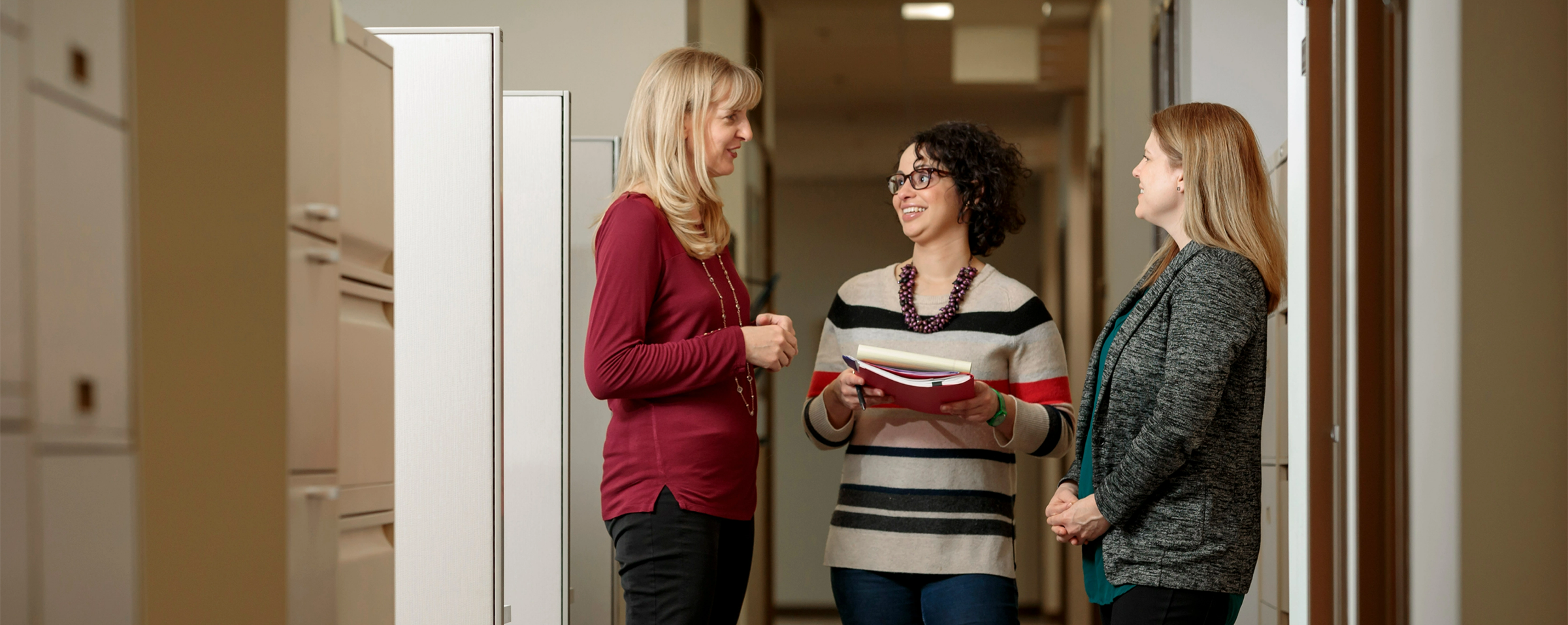Pillar Page Project – 1

Why Earn A Degree in Applied
Health Behavior Research?
What is applied research?

Applied research can take many forms, but one thing is always true: the goal is to solve existing, real-world problems.
In the fields of public health and medicine, applied research seeks to improve health outcomes by implementing effective interventions and their evaluation into standard practice in clinical and community settings.
Unlike basic research, which seeks to acquire or improve a body of knowledge, applied research is focused on the practical implementation of scientific techniques. In fact, applied research is often used to validate the findings and further investigate the outcomes of basic research.
Basic vs. Applied Research
Definition
Basic Research
Investigation into scientific theories for better understanding and prediction of phenomena.
Applied Research
Implementation of scientific techniques in order to solve practical, real-world problems.
Characteristics
Theory-oriented, primarily concerned with the expansion of knowledge
Action-oriented, primarily concerned with the application of research findings
Advantages
Universal in nature and predominantly responsible for breakthroughs in most fields of study
Determines how best to implement research evidence in clinical and community settings
Examples
- Symptoms of anxiety disorders
- How the heart works
- Treatment options for anxiety disorders
- How weight affects heart function
What is an applied research master’s degree?
A master’s degree in applied research provides graduates with the skills they need to develop, analyze and evaluate research trials and programs with the goal of improving health behaviors, outcomes and quality of life.
For graduates with little or no research experience, an applied research master’s degree can serve as a bridge between undergraduate study and their next endeavor, whether it’s medical school, a PhD program, or a career in health promotion in clinical or community settings.
Here’s what you can expect to do in an applied health behavior research graduate program.
Scientific and medical breakthroughs happen daily, but their effect on the population depends on how readily patients and physicians address relevant health behaviors.
Determining how behaviors like exercise, smoking cessation, excessive alcohol use or missed medication affect patient health, and to what degree, is a factor in clinical outcomes that can help doctors, patients, and researchers determine the most effective interventions.
Health differences often reflect societal injustices. Minorities and other underserved groups experience greater difficulty obtaining health care and higher rates of illness and death across a wide range of health conditions.
A lack of diversity in clinical trials has played a significant role in creating these health disparities. Historically, clinical trials have relied almost exclusively on white male study participants, often excluding the groups most affected by a particular disease, condition or behavior. As such, gaps exist in our understanding of diseases and conditions, preventative factors, and the effectiveness of treatments across populations.
In a public health- and medicine-focused applied research degree program, students will seek to reduce health disparities by identifying and reducing barriers to research participation, increasing uptake of health services, and helping communities adopt and maintain healthier habits.
In public health and medicine, applied research seeks to transform the thoughtful knowledge and ideas of basic research into studies and clinical trials that provide evidence to support innovative interventions.
Graduate studies in applied research help students acquire the skills and knowledge to develop those trials, conduct practical research, interpret results, and ultimately use the evidence gained to solve real-world problems at the local and global levels. Whether in a clinical or community setting, these abilities are necessary for the creation, analysis, and management of high-quality health programs.